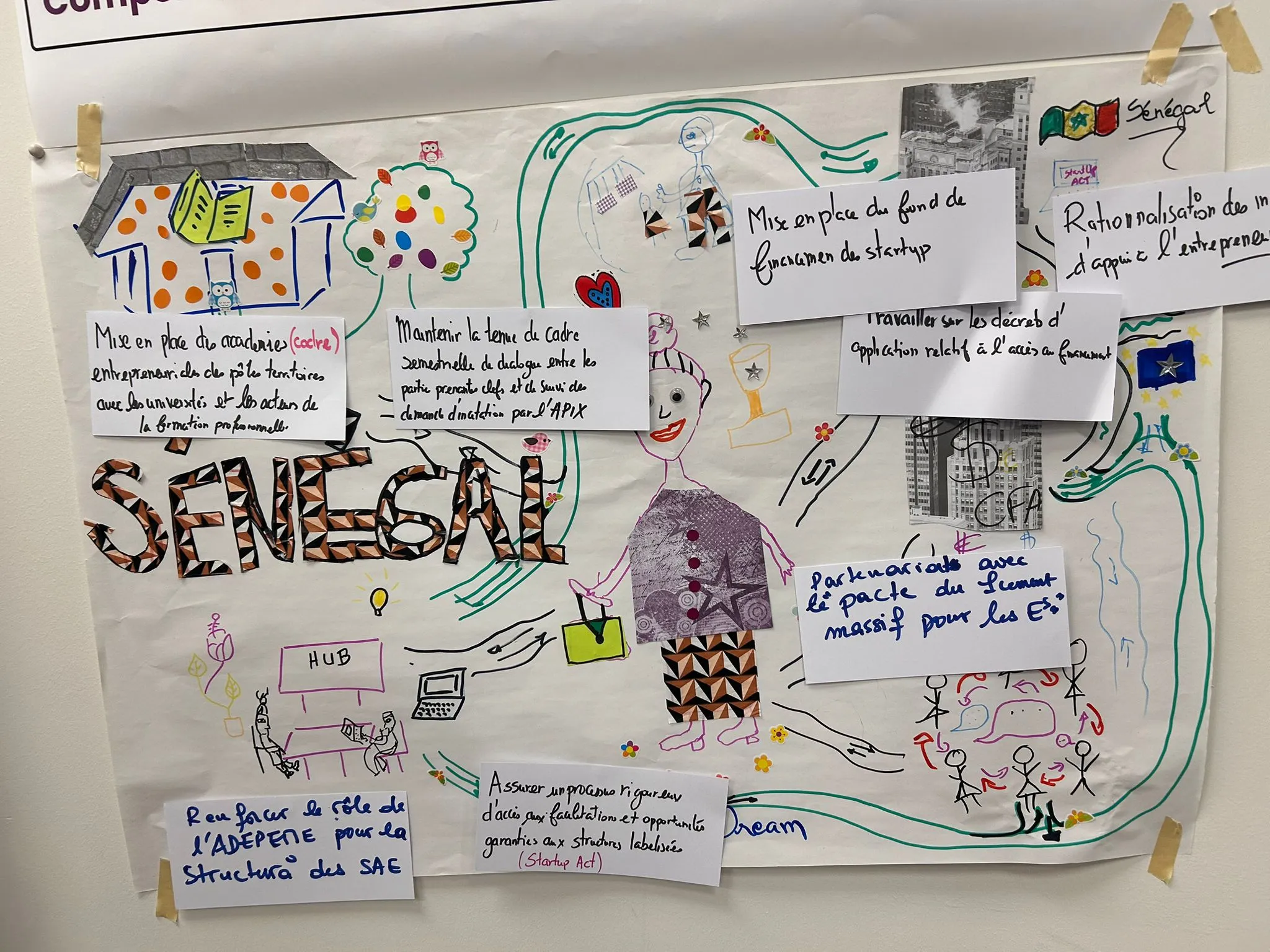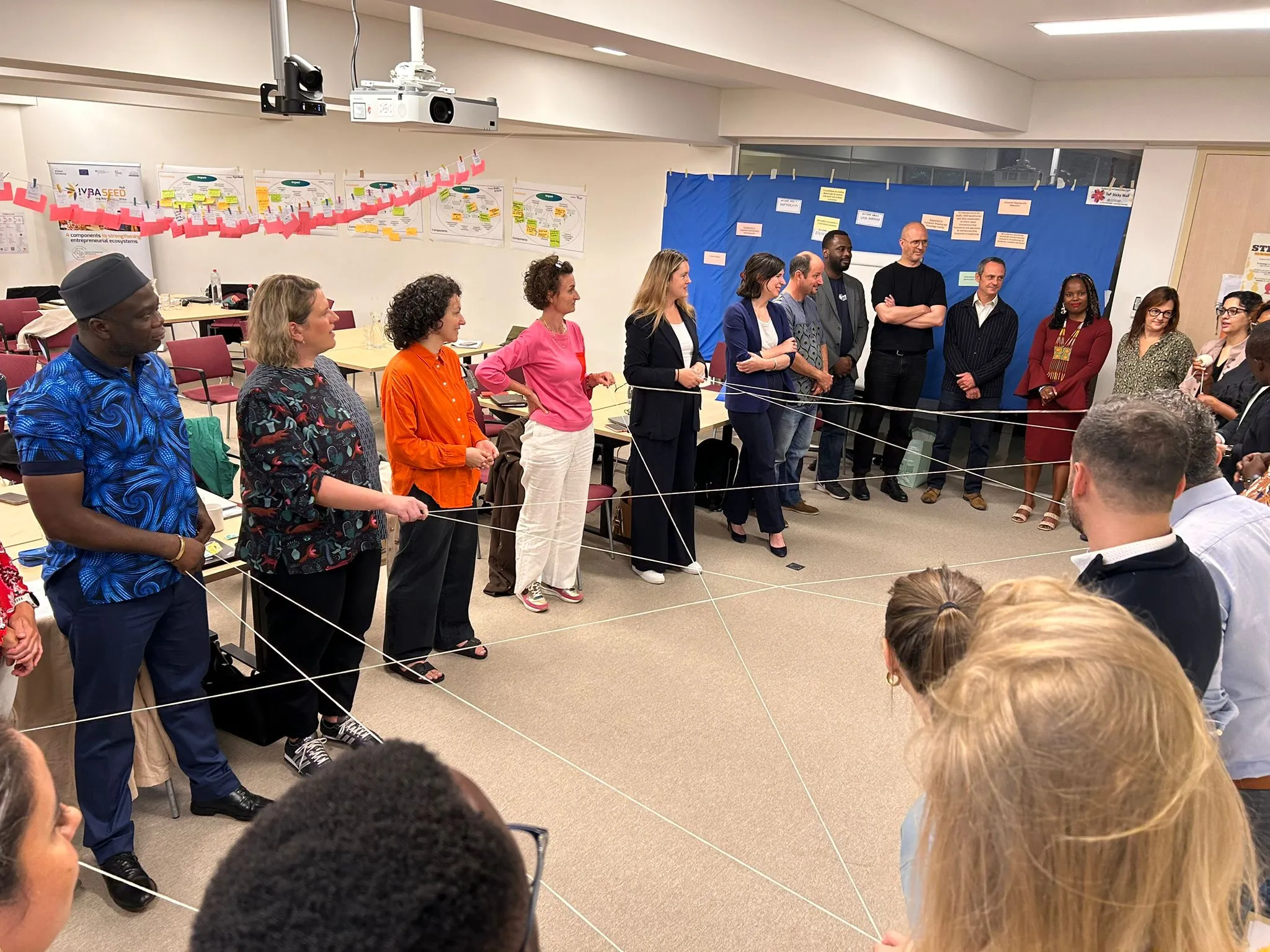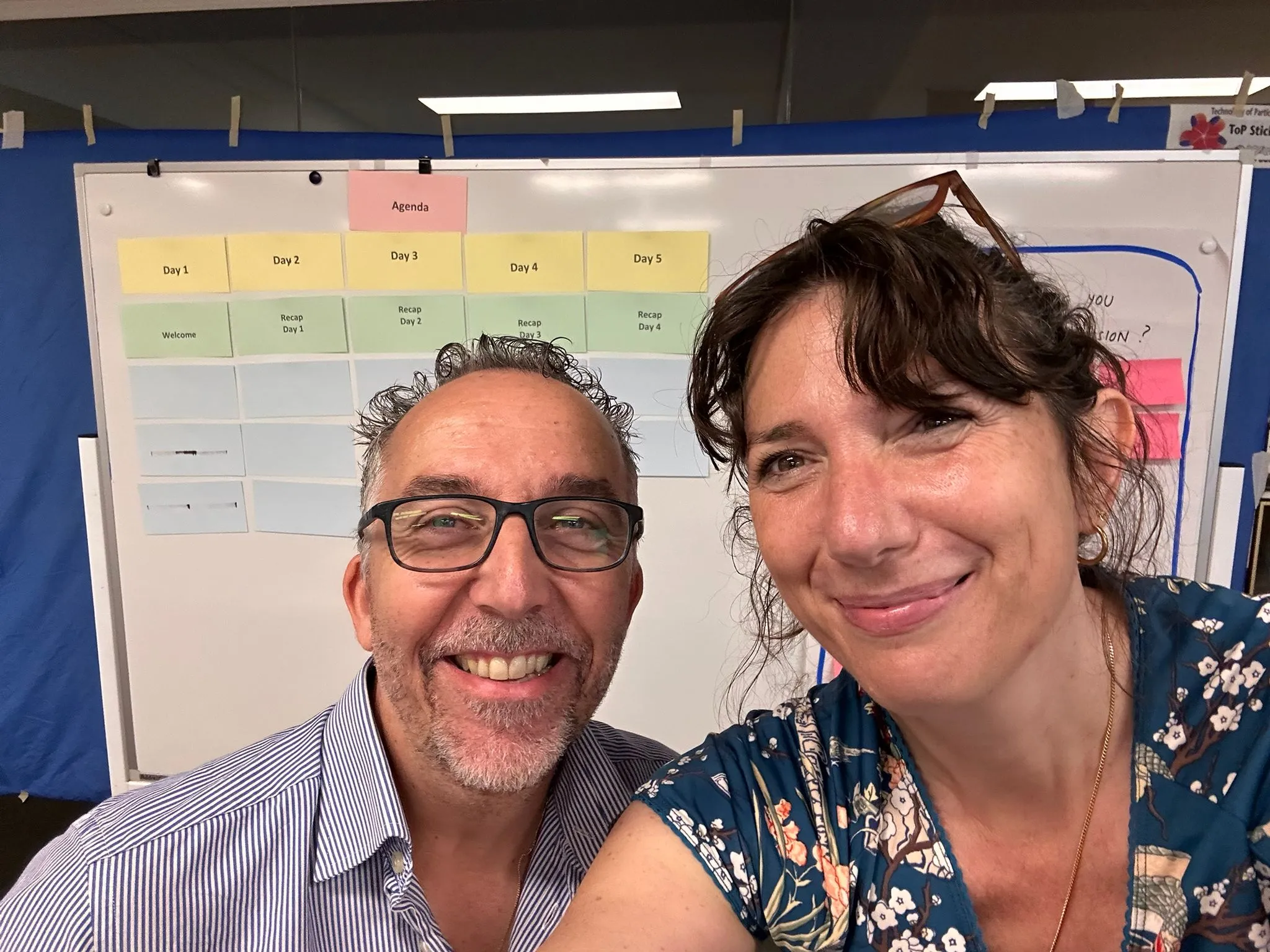Last week, I co-facilitated a session in Brussels for the IYBA SEED project with my colleague Nicolas. It was more than just another professional assignment it was a reminder of how friendship can quietly influence the way we hold space, navigate complexity, and foster connection. We were tasked with presenting lessons learned from five countries, using familiar participatory methods such as Most Significant Change, Outcome Mapping, and Appreciative Inquiry.

Yet the real challenge was deeper: how to validate findings while encouraging open sharing in a room that held 17 languages and multiple perspectives. Preparing virtually was not easy. With competing meetings and assignments, we had to imagine ourselves in a space we had never seen, with people we had not yet met. Facilitation of this kind requires more than careful planning it calls for emotional presence.
Holding space in complexity
Facilitation is often seen as a technical skill, but it is also an emotional practice. In Brussels, we designed a process that balanced structure with openness. We mapped outcomes visually, validated them with coloured dots, and then asked participants: “How did you achieve these outcomes?” This question unlocked stories. Groups shared experiences from their countries, adding nuance and depth. The visuals became more than tools they were invitations to speak, reflect, and connect. We closed with an envisioning exercise, where each group created a vision board for the project’s future. The results were hopeful, grounded, and deeply personal.

A rope, a word, a connection
One moment stands out clearly. At the beginning of the day, Nicolas led a rope exercise. Participants stood in a circle, tossing the rope to one another. Each person held on to their piece, shared a word aboutthemselves, and reflected on something they had learned often in their own language. Slowly, the rope wound its way through the group, weaving a visible web of connections. This simple act captured the essence of what we were trying to build: connection across a large and dispersed team. It offered a powerful metaphor for collaboration literally tied together by purpose.

The vulnerability of storytelling
Encouraging people to share across cultures and languages is never neutral. It requires sensitivity to voice, power, and context. Some voices were naturally quieter not because there was less tosay, but because they needed more time, more safety, and more invitation. Facilitation in these settings is not about extracting information. It is about honouring lived experience and ensuring that people feel their stories matter.
Friendship as an anchor
Throughout this process, our friendship served as a quiet anchor. It gave us the confidence to improvise, the patience to listen,and the ability to understand one another with just a glance. We may not always agree, but trust allows us to navigate uncertainty and hold space for others. Friendship in professional spaces is not always simple. It requires boundaries,reflection, and care. But when it works, it can be transformative.

Looking ahead
As facilitators, we often focus on creating safe spaces for others. Yet we must also acknowledge the need for safe spaces for ourselves. Not every colleague will become a close friend. Still, we can commit to working with respect, care, and attentiveness, creating environments where people feel safe, seen, and valued. Behind every method, tool, and process are people. Sometimes they are friends, other times, simply fellow travellers in a shared journey. In either case, the invitation remains: to hold space for one another with intention, humility, and humanity.











